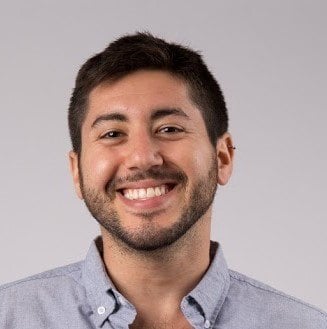
Like most Indians, Ritwik “Ritu” Chakravarty was raised with a strict notion of traditional gender roles. But for Ritu, who identifies as a trans woman, such rigidity never made sense.
“My name, Ritu, means ‘weather’ or ‘season,'” she says today. “And my gender was fluid, changing like the weather.”
This openness has allowed Ritu to become one of the most impactful leaders of HUMSAFAR— an AJWS grantee in Lucknow, India, which has mobilized about 10,000 youth and LGBTQI+ people to fight against gender and sexuality-based violence and restrictive social structures.
In Hindi, ‘humsafar’ roughly translates to ‘partner on a journey.’ And that’s what this collective has been for thousands of Indians. HUMSAFAR was founded as a crisis center for survivors of gender and sexuality-based violence, offering an emergency hotline, connections to shelters, legal assistance, hospital advocacy, accompaniment to police stations and more.
In recent years, they’ve expanded their work to address the root causes of this brutal abuse against women and LGBTQI+ people: patriarchal values, discrimination and fiercely restrictive gender norms. Dynamic leaders like Ritu work in 35 communities in Lucknow to engage and collectivize women, youth and queer people. Humsafar activist leaders educate these communities to see their own struggles related to each other’s, and to understand how religion, caste, and socio-economic status also affect their lives.
For Ritu, this work is deeply personal. Her own transformation into a life-changing, norm-shifting activist took pain, patience and courage.
Ritu grew up extremely close with her grandmother; she adored learning family recipes and performing puja, or Hindu religious ceremonies, together. But Ritu noticed how her grandmother wasn’t respected by the men of her family.
“They denied the very existence of these women — their agency, their emotions,” she recalls.
Ritu expressed herself with dance from an early age — through movement she could feel at home in her own body, even as peers at school and men in community criticized her femininity. But when her father caught on, he brutally assaulted her with a bicycle chain.
“He told me if he ever saw me dancing again, he’d kill me,” Ritu remembers. “But I told myself: Why would I change for someone else when I know that I am shining?”

Ritu’s family forced her to join the youth camp of Rashtriya Swayamsevak Sangh, a right-wing, Hindu nationalist group, to learn ‘proper masculinity.’ But teenage Ritu persevered — despite social indoctrination and family violence — and slowly grew into a powerful trans woman bent on helping others. All others. She began marching in protests organized by local feminist organizations, stood up for persecuted Muslim communities, and carved out her own place in Lucknow’s queer community, which is dominated by cis-gendered gay men.
When Ritu joined HUMSAFAR to lead youth programming, inclusivity and intersectionality were at the heart of her personal mission. Today, she is an outspoken leader in both local Humsafar collectives and in Lucknow’s wider community — often invited to dance at public events.
In early 2024, HUMSAFAR held their annual Gender & Sexuality Fair, inviting hundreds of community members to a carnival of conversations and games, different stalls to engage women, young people and queer people to challenge their own biases. In a leafy yard behind a school — tucked away next to the busiest corridor in the center of Lucknow, India — HUMSAFAR filled the space with rainbows.

One stall included posters of Indian laws that govern the lives of queer people — including Article 377, a law that criminalized homosexuality and was struck down in 2018 thanks to fierce advocacy from the LGBTQI+ community in India, including some of AJWS grantees.
Before a crowd gathered, Ritu asked another trans woman a question that summed up the whole fair: “What is the world you want to live in?”
She took a moment and answered, defiantly, “I just want to be treated like any other human being. That’s my right.”
For Ritu and other HUMSAFAR leaders, there can be no ‘better world’ unless all persecuted groups are included.
“If any part of your body is sick, your whole body is incapacitated. Fighting for human rights works the same way. If people are oppressed in the name of religion, gender, class or sexuality, then I cannot fight for my cause alone,” Ritu says. “Because the dignity of every living being matters. That’s the bond of humanity. We can’t create a utopia if anyone is left at the gates.”
Below, join HUMSAFAR’s program coordinator Richa Rastogi at the Gender & Sexuality Fair in Lucknow!


